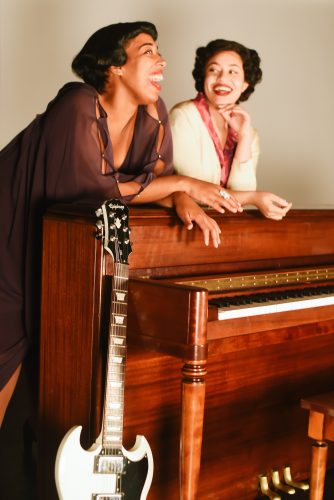Director’s Notes: Marie and Rosetta

My friend George Brant posted that he was working on a play about Sister Rosetta Tharpe on facebook and I immediately started researching her. I started by reading her biography. I stayed up late watching and listening to everything I could find about her. I keep asking myself, “how did I not know that rock was invented by a black gospel singing woman from Arkansas? Does the world know this?”

The big problem when dealing with the history of rock ’n’ roll is the way it is dominated by men. The story that is told is one of men crowding out women and white men crowding out black men and finally rich white men crowding out poorer white men. What we know as rock ’n’ roll did not exist before Sister Rosetta Tharpe. She came before Elvis and Johnny Cash. She preceded Chuck Berry and Little Richard. Every single one of those men, including Jimi Hendrix, has credited her signature style–a blend of blues, jazz, gospel, and a new sound with more grit and edge than anything that had been heard before—for the sway it had on their own creations. We can also thank her for bringing the electric guitar front and center.